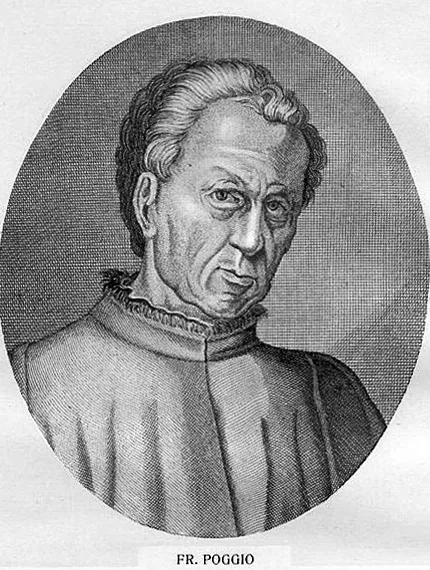
In 1417, the Italian humanist Poggio Bracciolini discovered the last surviving copy of a Roman philosophical epic moldering in a German monastery. The book was De Rerum Natura (On the Nature of Things) written by the poet Lucretius in the first century BCE, and the ideas it reintroduced would challenge Church orthodoxy and help usher in the modern era.
The book’s description of a universe formed not by divine agency but rather by natural laws reintroduced an ancient concept of atomism. The world, Lucretius argued, is created of small particles eternally colliding and reconstituting.
Nearly 600 years later, Bryn Mawr College’s Italian and Italian Studies department is hosting a symposium celebrating all of Poggio Bracciolini’s activities, which also include the discovery of numerous other Roman-era texts, an impressive body of rhetorical treatises and translations, an extensive correspondence with fellow humanists, and the design of a new script that evolved into the Roman type still used today.
The event, “Classicism, Humanism, and Modernity: Poggio Braacciolini’s Legacy in Florence and Beyond,” is being held on April 8-9 on the Bryn Mawr campus. Scholars from around the world will join Bryn Mawr experts David Cast, Julia Gaisser, Eric Pumroy, Roberta Ricci, and Nancy Vickers for the two-day symposium, which is dedicated in memory of noted Renaissance scholar and BMC alumna Phyllis Walter Goodhart Gordon ’35. Victoria Kirkham, an emerita professor at the University of Pennsylvania, will deliver the keynote lecture, “Before Poggio: Shall We Call Boccaccio a Humanist?”
Read more about the symposium.